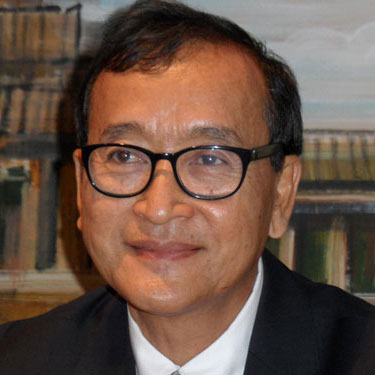Across Southeast Asia, the resurgence of political dynasties is casting a long shadow over democratic governance. In both Thailand and Cambodia, power is no longer passed through meritocratic processes or competitive institutions, but rather inherited within dominant families. The Shinawatra family in Thailand and the Hun family in Cambodia have each entrenched themselves at the helm of national politics, sidelining experience, maturity, and leadership in favor of lineage and loyalty. This concentration of power raises serious ethical and institutional concerns—not only for the internal stability of each country, but also for the fragile relationship between the two.
Dynasties and the Erosion of Democratic Governance
In Thailand, Prime Minister Paetongtarn Shinawatra, daughter of former Prime Minister Thaksin Shinawatra, now faces a growing political storm. A formal impeachment petition has been submitted by the President of the Senate, Mongkol Surasajja, following a leaked audio recording of a conversation between Paetongtarn and Hun Sen, President of the Cambodian Senate and former Cambodian Prime Minister. In the recording, Paetongtarn appears to disparage elements of the Thai military and suggests alignment with foreign influence, prompting accusations of undermining national security and violating constitutional and ethical standards.
Critics argue that Paetongtarn’s rise to power was less about qualifications and more about her last name—an emblem of the Shinawatra political dynasty. Many senators and members of the Defence Committee have questioned her leadership abilities, accusing her of lacking maturity and decision-making capacity to govern a polarized and complex nation. Her tenure has been marked by internal division and a perceived submission to foreign interests.
In Cambodia, a similar dynastic pattern prevails. After nearly four decades in power, former Prime Minister Hun Sen handed over the role of Prime Minister to his son, Hun Manet. Like Paetongtarn, Hun Manet was suddenly catapulted into the top position despite having no prior government experience. Today, Hun Manet merely imitates his father’s political style—often clumsily—while real power remains with Hun Sen, who continues to dominate Cambodia as President of the Senate and as leader of the ruling Cambodian People’s Party.
Cross-Family Ties and Dangerous Conflicts of Interest
To make matters worse, the Shinawatra and Hun families have maintained more than just friendly relations for over two decades. Former Cambodian Prime Minister Hun Sen has reportedly had business ties with Thaksin Shinawatra and even played a key role in helping Thaksin’s sister, Yingluck Shinawatra—who also served as Thai Prime Minister before being ousted by the military—flee Thailand illegally in 2017 to avoid prosecution. Hun Sen granted her a Cambodian passport, allowing her to escape to a third country.
These personal “debts” between political families raise serious questions about conflicts of interest, especially when both clans simultaneously control power in their respective nations. Such entanglements blur the lines between diplomacy, personal loyalty, and state responsibility. The risks posed by these hidden alliances become particularly acute when bilateral tensions escalate into open confrontation, as is currently the case between Thailand and Cambodia.
In moments of national crisis, personal ties between leaders of neighboring states can compromise national interests, weakening the very foundations of sovereignty and public trust.
Weakened Leadership and the Hollowing Out of Institutions
The rise of Paetongtarn Shinawatra and Hun Manet highlights a broader regional trend: the institutionalization of political dynasties that bypass the meritocratic principles essential to effective governance. In both countries, the separation between public service and private interest has grown dangerously thin.
When leadership is inherited rather than earned, governance risks becoming erratic and symbolic, with real decision-making power retained by unelected family patriarchs. This undermines accountability and stifles reform. In Cambodia, Hun Sen remains the true center of power; in Thailand, Thaksin Shinawatra’s shadow looms large over his daughter’s premiership.
The current impeachment motion against Paetongtarn Shinawatra is not just a legal or political event—it reflects a deeper structural failure, where institutions have become vehicles for dynastic survival rather than instruments of democracy. Similarly, Hun Manet’s government, eclipsed by his father’s enduring grip, offers little promise of independent or visionary leadership.
Rebuilding institutional integrity in Thailand and Cambodia will require more than reshuffling names at the top. It will demand a fundamental shift back to principles: competence over kinship, transparency over secrecy, and public service over personal loyalty.
[Photo: AP]
The views and opinions expressed in the article are those of the author.

Sam Rainsy, Cambodia’s finance minister from 1993 to 1994, is the co-founder and acting leader of the opposition Cambodia National Rescue Party (CNRP).

